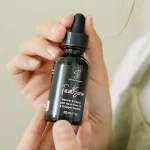We can truly alter our aging process by the way we live. For most men, whether we can ultimately alter our longevity is not as important as enhancing our health and vitality as we age. It’s the quality and vitality of life that matters, not merely the quantity.
In this article, I discuss the aging process in general for men, look at testosterone and hormonal changes, and then focus on maintaining prostate health and sexual function over the later years. And clearly for men, their prostate and sexual function are important to feeling youthful. Those that remain lovingly active, sexually and sensually, often feel better in many other ways as well.
Let me first say a few words about male aging, which I hope to experience, only very slowly with vitality and verve. We each have our genetics and biological clocks. Hopefully, if we play our cards right with healthy habits, understanding our risks and disease potentials, we can outlive our parents and ancestors. And for most issues of genetics and aging, lifestyle can trump our genetics and give us greater health and less disease.
Men need to look at and take action to prevent some of the common diseases that take us out of life too early. The big ones here are the cardiovascular diseases that start with inflammation, rising blood pressure, higher cholesterol, and subsequent atherosclerosis. The other is weight gain with rising blood sugar and insulin resistance of pre and early diabetes that speeds up cardiovascular problems. Lifestyle is so important to all of these common aging issues and helps in preventing, or at least delaying them. The lifestyle keys are focused on diet, exercise, and stress management.
Cancer risk is also a health and longevity threat, and here the colon and prostate are major concerns. These areas can and should be checked with some regularly to pick up any early changes. Colonoscopy, digital rectal exams, and PSA blood tests in men are well accepted for early diagnoses of these common cancers, although PSA tests have more recent controversy (as does mammography in women) because of potential fear and over-treatment that they can cause unnecessarily; also, there is controversy on how many of prostate cancers should be left alone and watched rather than suggesting and using aggressive treatments of surgery, chemotherapy, and radiation. Lung cancer is a minimal risk if you don’t or have not smoked. If so, regular chest x-rays are a test to consider.
It is important for men in the aging process to maintain normal weight, blood pressure, blood cholesterol, and blood sugar. Abdominal obesity from excess calories from refined foods, especially flour and sugars products, along with excess alcohol use can cause higher risks for many diseases. In current times, it’s easy to be overweight (or let’s say, harder to stay trim), however, research is showing that health and longevity can be protected with exercise and staying fit even with being somewhat overweight. A sedentary life with overeating and being overweight can create a high risk of disease and a shorter lifespan.
Tips for Healthy Aging
- Avoid Overeating and rich, fatty foods in your diet.
- Minimize Sugar, Flour, And The Many Refined Foods made from them as well as excessive alcohol.
- Maintain Normal Weight.
- Focus Your Diet around fresh vegetables with quality proteins and fresh fruit.
- Get Regular Exercise and avoid a sedentary lifestyle.
- Stretch to stay young and flexible.
- Stay Strong with weight training; muscle mass is important for healthy aging.
- Do Aerobic Exercise to stay fit and maintain endurance.
- Practice Stress Reduction such as meditation, breathing, qigong, tai chi, yoga, or relax out in nature.
- Listen To Your Body, and partner with your healthcare provider to address imbalances or symptoms such as sleep problems, digestive issues, sexual dysfunction, allergies, weight loss or weight gain, and stress issues; find ways that work to resolve these issues.
- Do Your Annual Physical Checkup to catch early signs of pending health problems.
- People Who Live A Long And Healthy Life tend to practice forgiveness, find a good balance between work and relaxation, feel gratitude and joy every day, nurture their creativity, stay connected with their friends and family, make a living doing something they enjoy, and use their talents and gifts to be of service to others. Wow! That’s another whole list.
HORMONAL CHANGES IN MEN
Many things change as we age, and this is true for blood levels of our hormones along with lower functions. For men, the many related hormones could become lower with time. This relates especially to testosterone, but also to thyroid and adrenal hormones, and less so to estrogen and progesterone. DHEA, or dehydoepiandrosterone, is a precursor substance that is produced form cholesterol molecules in the adrenals, and acts as a precursor for testosterone and estradiol. For both men and women, better levels of blood DHEA-S (sulfate) tends to be associated for both men and women with feeling better with a greater sense of well-being as they age.
In my office, I measure several blood levels when assessing men, especially over 40 years old. These include testosterone (often the total and “free” levels), DHEA-S, thyroid, and sometimes estradiol levels; if there’s fatigue I may order a 4-test saliva sample to check cortisol levels throughout the day. You and your doctor need to clarify the difference in test levels between the wide range of normal and more optimal levels.
If testosterone levels are low normal and there are symptoms accordingly, along with the person’s request to experience how they feel with some added body levels of circulating testosterone hormone, I will prescribe a topical hormone cream to apply daily for a couple months. Low male hormone levels can affect energy, mood, strength, sexual function, and vitality. After trying the treatment, we can evaluate the results and see what symptoms may have improved and how that correlates with blood or saliva levels of hormones. Testosterone can also be used as injection in oil, given every two-three weeks on a regular basis.
The use of testosterone replacement or enhancement in aging men is a controversial treatment. Over recent decades, it was thought to be cardio-protective as well as improve stamina and vitality; however, recent reports are suggesting that testosterone adversely affects the cardiovascular system. I don’t believe it as of yet, but it’s wise to review this aspect with your practitioner if you consider testosterone therapy.
PROSTATE PROBLEMS AND PREVENTIONS
It appears that the common disease among men over 50 (and now over 40) involves the prostate sex organ (and the colon, with stagnation and toxicity, diverticulitis and cancer). The Western lifestyle of stress and sitting plus often hours of driving and traffic, working, and TV watching; stuffing food and emotions; eating animal flesh and milk products; consuming sugary foods and caffeine; and using alcohol regularly—sets the stage for chronic, debilitating and degenerative diseases, such as cardiovascular problems, cancer, and arthritis, as well as prostate enlargement (BPH—Benign Prostatic Hypertrophy) and prostate cancer.
The prostate is a fibro-muscular organ, about the size of two walnuts placed together, and it sits at the bottom of the man’s pelvis behind the genitals and in front of the rectum. It can be felt (palpated) with the medical “digital exam” whereby a doctor sticks his gloved and lubricated index finger in through the anus and pushes forward. We should feel the pliable yet firm lobes without any enlargement, swelling, lumps or stony material. And the patient should not feel any pain, however, it could feel uncomfortable with a pressure like you have to urinate. Some symptoms of prostate enlargement or infection may be a pressure or swelling feeling in the perineum, or even more commonly, frequent urination and difficulty in starting or stopping urination. Men often need to get up two or three times at night to pee, which can lead to sleep issues as well. There may also be some change in the urine stream or force behind the urination. The ureter, or tube that passes from the kidneys and through the bladder, also goes through the prostate tissue and then through the penis. Thus, when the prostate is swollen, it may interfere with the urine flow.
A blood test can also be done to measure an antigen that is created by prostate cancer cells. It’s called the PSA (Prostate Specific Antigen) and if it’s elevated, that may mean prostate cancer is present. With inflammation or infection, the PSA can also go up; thus, it may need to be double-checked and/or rechecked after a course of antibiotics to treat any potential infection. If the elevation persists, even after any infection is treated, this may require further testing, as I believe it’s always wise to find out what is going on in our body. If it’s bad news, at least we can deal with it from there. Other tests to investigate the prostate further include a prostate ultrasound (sound wave assessment of the prostate tissue), a cat scan or the new body scan (both which utilize x-ray), and a prostate biopsy, which is usually done by an urologist. Luckily, many prostate cancers are slow growing or have not spread; yet they still can cause medical problems and metastasize over time.
The best overall plan, however, is to stay healthy and to maintain a healthy prostate.
As reviewed above, this involves staying young and in shape; maintaining sexual activity; getting regular exercise; managing your stress levels; taking stretch and activity breaks from long periods of sitting and computer work; eating a wholesome diet with lots of fresh veggies and quality proteins plus healthy fats; and avoiding excess substance use, especially of refined sugars, red meats and alcohol, while obtaining adequate essential fatty acids daily, such as two teaspoons of flaxseed oil, as well as adding fish oils and evening primrose oil. These are all ways that may help to prevent prostate problems.
Lycopene found in tomatoes (highest amount), watermelons, pink grapefruits, guava, and papaya is an antioxidant that mops up free radicals and helps protect the body against cancer. Cooked tomato products like tomato sauce allows lycopene to be more readily absorbed by the body. In research studies, two servings of tomato sauce a week are enough to lower the risk of developing prostate cancer.
Cruciferous vegetables such as broccoli, cauliflower, cabbage, Brussels sprouts, bok choy, collards, broccoli sprouts, Chinese broccoli, broccoli raab, kohlrabi, mustard greens, turnip, radish, rocket, watercress, and kale all contain sulforaphane, an anticancer and antimicrobial compound that helps the body repair damages caused by cancer cells while slowing down its growth. Another added benefit of eating these nutrient-rich cruciferous vegetables is the decreased risk for cardiovascular diseases while providing higher levels of vitamins and minerals that are also needed to prevent or fight cancer. The sprouts of these vegetable seeds, especially broccoli sprouts, have been shown to have anti-cancer effects.
Avoid charring meats when cooking (especially in grilling) to reduce the levels of a cancer-causing substance known as PhIP which has been associated to the development of prostate cancer in lab animals. Slow roasting, stewing, and broiling (without charring), are better ways to cook meats.
Zinc, selenium, Coenzyme Q10, vitamins C and E, vitamins K2 and D3, and the B vitamins, particularly B6, are all important for a healthy prostate, as are a number of herbs, which can also be used to treat prostate problems as well. There are two herbs that are specifically useful in preventing and treating prostate diseases, and thus, supporting sexual function. They are Serenoa repens and Pygeum africanum.
Saw palmetto berry (Serenoa repens) has been shown to effectively diminish pain, inflammation and enlargement of the prostate, as well as to reduce urinary urgency. It may work by inhibiting dihydro-testosterone (DHT), thereby reducing its stimulation for cell multiplication. Saw palmetto has been used for centuries and is also thought to have a mild aphrodisiac effect, as well as increasing sperm production and sexual vitality.
Another useful herb comes from an African evergreen tree, Pygeum (Pygeum africanum), and has been shown in research to reduce prostate enlargement and inflammation; it may also help stimulate libido. Pygeum has many natural chemicals that have anti-inflammatory and other positive effects on energy and bodily functions.
Some prostate formulas also may contain other herbs like nettle, or pumpkin seed extract or oil (higher in zinc and supportive of prostate health), and beta-sitosterol, a healthy fat that also supports prostate. Most men over 40-50 can benefit form the regular use of a good prostate health formula to both support this organ and prevent prostate problems.
The herbs and formulas work well and often at less expense and less potential harm or side effects than the popular drugs, such as Proscar or Flomax. These medications are typically prescribed by doctors for men with prostate enlargement or urinary symptoms.
Ultimately, it is conceivable that if we follow the aforementioned lifestyle advice, we can avoid treatment altogether and maintain both a healthy prostate and our sexual health and vigor. Long-term survival rate approaches 100 percent when prostate cancer is detected early. The ACS (American Cancer Society) recommends a PSA blood test and digital rectal examination be offered annually for men starting at age 50, although that is more recently questioned as to whether this test actually helps in saving or prolonging lives. Men in high risk groups, such as African American men, those with family histories of this disease, or with a history of rising PSA levels as well as altered levels of estrogen or testosterone, may begin testing at a younger age (i.e. 40-45 years). Men, who are not at high risk but are between 40 and 50 years old, may want to do both tests every two-three years.
It is far better to pick up any medical problems early, and this certainly applies to the prostate. Stay Healthy!
A good web site to keep abreast of prostate cancer research and treatments is www.ProstateCancerFoundation.org. Check out the latest research and guidelines.











